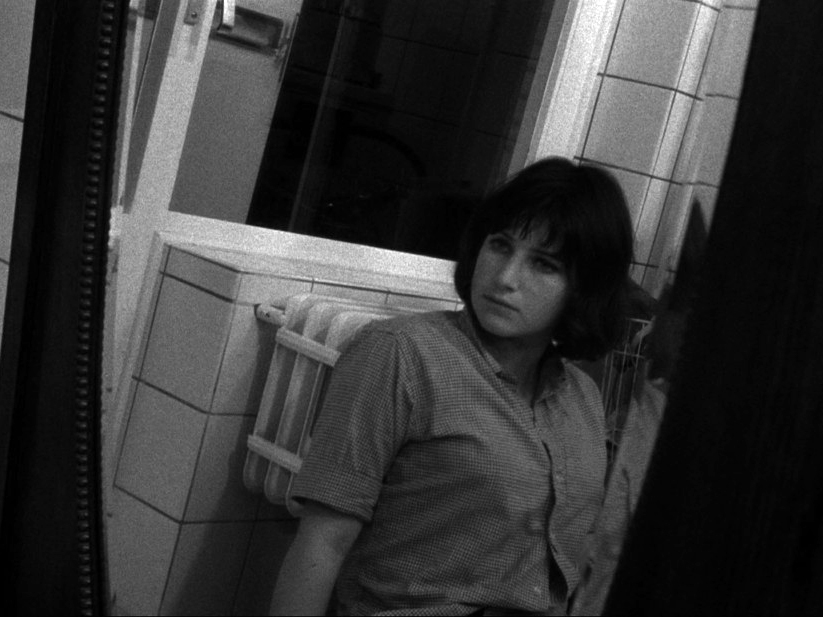
A young girl shuts herself away in her apartment and goes about her business in a strange way, as she wastes the night in her apartment.
EN
“Akerman has described her first film, Saute ma ville, made when she was only 18, as her attempt to do something Chaplinesque. I strongly suspect that she was thinking about Chaplin’s fourth comedy short made at Mutual, his justly celebrated One A.M. (1916), where, apart from a cab driver glimpsed briefly at the very beginning, Chaplin is the only actor in sight, his character arriving at his own home and proceeding to interact catastrophically with the various props he encounters as he tries to get upstairs and go to bed.
Chaplin’s narrative pretext for all the comic chaos engendered is his character’s extreme drunkenness. Akerman – whom we hear manically and wordlessly singing offscreen from the very outset, and is also the only character we see, arriving home and in her case restricting her activities there to a kitchen – provides no narrative context of any kind beyond a certain punklike rebellion against the various domestic rituals that she performs or pretends to perform. These are the same sort of rituals, such as cooking, eating, cleaning up, and polishing shoes that, seven years later, Jeanne Dielman will compulsively embrace, although in this case Akerman’s own frenzied and parodic enactments eventually culminate in a series of offscreen explosions from a gas stove that fulfill the film’s apocalyptic title. (The ‘cleaning up’ that she performs earlier is in such a destructive manner that it recalls the final sequence in Vera Chytilova’s radical Czech farce Daisies, released two years earlier in 1966, when the two teenage heroines pretend to ‘clean up’ after their protracted and extravagant food orgy inside a banquet room.)”
Jonathan Rosenbaum1
“A combination of youthful determination and good luck put Akerman on the map. While abroad, she worked to gather money to pay off the debts she had incurred while making Saute ma ville. Meanwhile, the film remained parked in a Brussels film lab owned by the critic and programmer Dimitri Balachoff. After Balachoff finally watched Akerman's film, he connected the fledgling director with his colleagues in Flemish television, which was a haven for shorts and experimental films. From there, Akerman tracked down Eric de Kuyper, a writer and filmmaker who at the time programmed De andere film, a television series known for broadcasting works by underground filmmakers like Andy Warhol and rising European auteurs like Rainer Werner Fassbinder. "I was impressed by the direct spontaneity of [Saute ma ville] as well as by the maker, de Kuyper has said (Akerman, after all, had turned up at his doorstep, movie in tow). "So of course I showed the film." The day after Saute ma ville played on TV, Belgium's leading filmmaker, André Delvaux, sang its praises on his radio program. According to de Kuyper, Akerman still looked like a child when she arrived on the film scene. Yet, essentially without training or guidance, she had made something that inspired the support of bona fide pros.”
Beatrice Loayza2
- 1Jonathan Rosenbaum, "Chantal Akerman: The Integrity of Exile and the Everyday," LOLA Journal, 2011.
- 2Beatrice Loayza, "Chantal Akerman, 1968-1978: The Weight of Being," Criterion, 23 January 2024.

